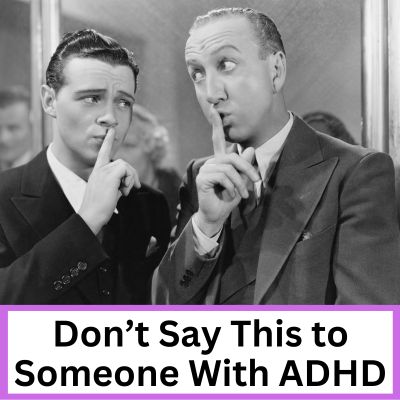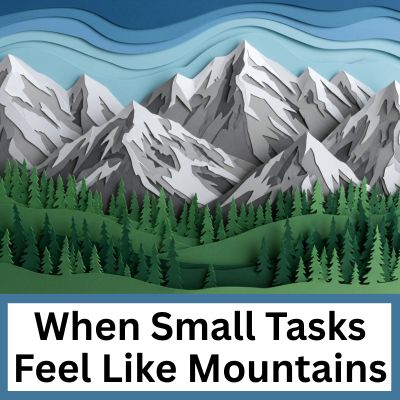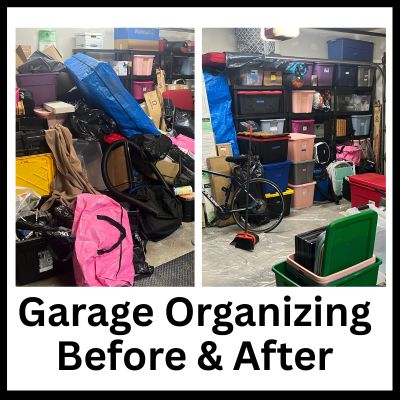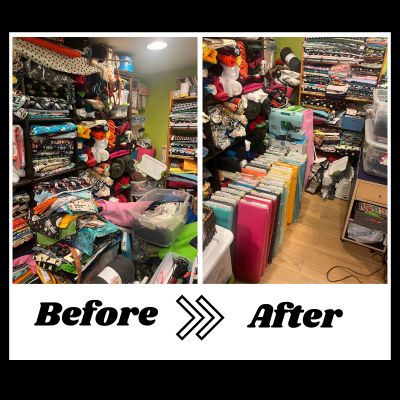Don’t Say This to Someone With ADHD

People with ADHD have been told to “just try harder” for most of their life. In fact, people with ADHD often have to work twice as hard as someone without ADHD, for half the result. The level of internal dialog going on in their mind to “work harder”, “stop being so lazy”, and to “quit procrastinating” is probably pretty significant. People with ADHD have to actively work on quieting this internal dialog just so they can focus. ADHD is invisible, so you may not even know someone has it at all! It can show up very differently for people. Whether or not you know someone has ADHD, it’s best not to say these things to anyone, as they usually do more harm rather than motivating someone.
- Don’t say: “Just try harder.” Or “Work faster.”
This reinforces the struggle someone is already having. Trying to do the same thing the same way over and over with no positive result will drive anyone insane. People with ADHD need to try to do things differently, so they can achieve results. This may mean making changes to their environment, their daily routines, their lifestyle habits, or possibly taking medication. Asking someone to work faster will have the opposite effect as it can trigger a stress response and cause the brain to get flooded and freeze.
- Don’t say: “You’re always late.”
People with ADHD often struggle with time management. They often have a very hard time approximating how long things will take. If you’re frustrated with a friend or loved one being late all the time, let them know how it makes you feel, and ask them if there’s anything you can do to help them (without being condescending!).
- Don’t say: “Quit interrupting me.”
It can be difficult for people with ADHD to achieve a natural flow in conversation. They may dominate the conversation or blurt things out unintentionally. Or they may be so hesitant to speak up in conversation for fear of interrupting, so they don’t say anything at all. If you’re struggling to maintain balance in conversation, try using a “talking stick” (an object that gets passed back and forth. When someone has the object, it’s their turn to talk.) Or practice with a timer, giving each person an equal time to speak.
- Don’t say: “Get to the point.”
People with ADHD often have divergent thinking, and can easily link ideas together. They may like to include a lot of details (some necessary, some not). This can be very hard to follow for someone who thinks very linearly. If you want to listen to someone with ADHD, but are having a hard time, ask them to pause so you can make sure you’re catching the important points they are trying to make.
- Don’t say: “You’re such a slob.”
One of the hallmark characteristics of many (but not all!) people with ADHD is disorganization. It does not come naturally to people with ADHD, and they often have not acquired ADHD friendly organizing skills. People who are disorganized have often been shamed and ridiculed for their messiness all their life. This fortifies their identity as being disorganized, and triggers defense mechanisms. If getting organized is important to them (and it’s important to remember that it’s not important to everyone), they will need to find someone who is patient and trustworthy to help them declutter and learn organizing skills. Professional organizers trained to work with people with ADHD (like me!) are ideal candidates to help.
- Don’t say: “Everyone has trouble focusing. ADHD is made up and isn’t real.”
I’ve heard people who I really adore and look up to say this $hit! This is incredibly dismissive. ADHD is much more than just an inability to focus. Proper treatment can drastically change someone’s life for the better, and can even save lives. Read Healing ADD by Dr. Daniel Amen.
- Don’t say: “Stop being so lazy”, “Quit procrastinating”, or “You just need to be more disciplined.”
People with ADHD often scold themselves enough for “being lazy” and procrastination. The part of the brain that is responsible for motivation isn’t as active as a neurotypical. ADHD can also be incredibly overwhelming, and cause a freeze response. Shaming someone into getting something done rarely works. People who seem to have the most discipline usually have to exert the least amount of discipline. They have set up situations in their environment and the people around them so that they naturally feel motivated and don’t have to waste mental energy avoiding temptations that take them away from their goals.
- Don’t say: “ADHD is overmedicated. Just quit eating junk food.”
We all know junk food causes people to feel depressed, anxious, lethargic, foggy, and will send someone on an emotional rollercoaster. Energy levels will spike and drop. It’s hard to get anything done on a diet of junk food. It exacerbates ADHD symptoms like crazy! This is definitely a chicken and egg situation. Junk food (especially sugar) is addictive, and without proper support (such as with medication) it can be hard to manage the emotions and impulses that gravitate towards eating convenient and tasty junk. To top it off, eating nutritious food usually takes more planning, organization, time management, and work. These skills may not be readily available to someone with moderate to severe ADHD symptoms. Saying something like this also perpetuates the stigma of ADHD medication.
- Don’t say: “You don’t need medication. Try meditation!”
Meditation is a pharmaceutical-free way to train the brain away from the amygdala (the fight/flight/freeze/fawn part of the brain) and instead activate the prefrontal cortex, which supports clarity, calmness, and executive functioning skills. Meditation helps rewire neural pathways to form healthier habits. Instead of getting derailed by a dysregulating thought, through regular meditation (and other thought exercises that involve meta-cognition), it’s possible to just observe a thought, but not let it get you off kilter. Meditation has many positive benefits. For some people, meditation may be enough of an activity to shift brainwaves and brain chemicals, but certainly not everyone. Comments that dissuade someone from taking a medication they might need are dangerous and could prevent someone from living a fulfilling life.
- Don’t say: “Just practice more.”
Very similar to “just try harder” or “work faster”, asking someone to “just practice more” leads them down the wrong path and greatly exacerbates self-criticism. Would you tell someone who needs glasses that they should just “practice” seeing?? No!! For many people, taking medication is the equivalent for wearing glasses for someone who’s eyesight isn’t as clear as it could be with assistance. Although “pills don’t build skills”, medication can help activate the part of the brain responsible for executive functioning skills, which are required for focus, memory, emotional regulation, organization, and more.
- Don’t say: “ADHD is just an excuse.”
A proper ADHD diagnosis can bring a lot of clarity and self-compassion to someone who’s been struggling for a long time. As they learn more about themselves, they can start to understand why they behave a certain way. There are societal “rules” that we all need to operate by, and having ADHD is surely not a hall pass for rude behavior. However, recognizing that someone has ADHD can also bring a lot of understanding to the relationship. ADHD affects all sorts of everyday tasks such as being at the right place at the right time, and making decisions. Be patient as they learn to navigate how ADHD affects them personally.
- Don’t say: “Stop overreacting.”
This is gaslighting. Don’t do it! Don’t even joke about it. Gaslighting is broad, and unfortunately very common. Many people aren’t even intentionally trying to gaslight someone. Read up on gaslighting. Learn about it. Watch videos. Listen to podcasts. Be able to identify it and avoid it. Call it out when you hear it. Apologize if you’ve done it.
- Don’t say: “You’re too organized to have ADHD.”
Insert the hand raising emoji here! This is me. I’m certainly not that picture-perfect magazine image of a minimalist, but I almost always know where to find my stuff, and I very rarely forget to do important things. I’ve had an interest in organizing from a young age, and I’ve picked up skills along the way. Although many people with ADHD have trouble with organizing, just because someone is organized does not mean they don’t have ADHD. There’s a lot more to it!
If you think you might have ADHD, but you’re not sure, send me a message. I would be happy to connect you with a very experienced psychiatric nurse who is highly skilled in diagnosing ADHD.

Posted By Jean Prominski, Certified Professional Organizer
- Follow me on Instagram @seattlesparkle
- Join my Facebook Group, Declutter and Organize with Seattle Sparkle.
- Ready to book a consultation? Complete this form.
- Download my free 5 week journal The Seattle Sparkle Method to Get Organized and Stay Organized
- Check out my media exposure: Seattle Sparkle in the Media
- For artwork to energize your home, order through jeanprominski.com.




